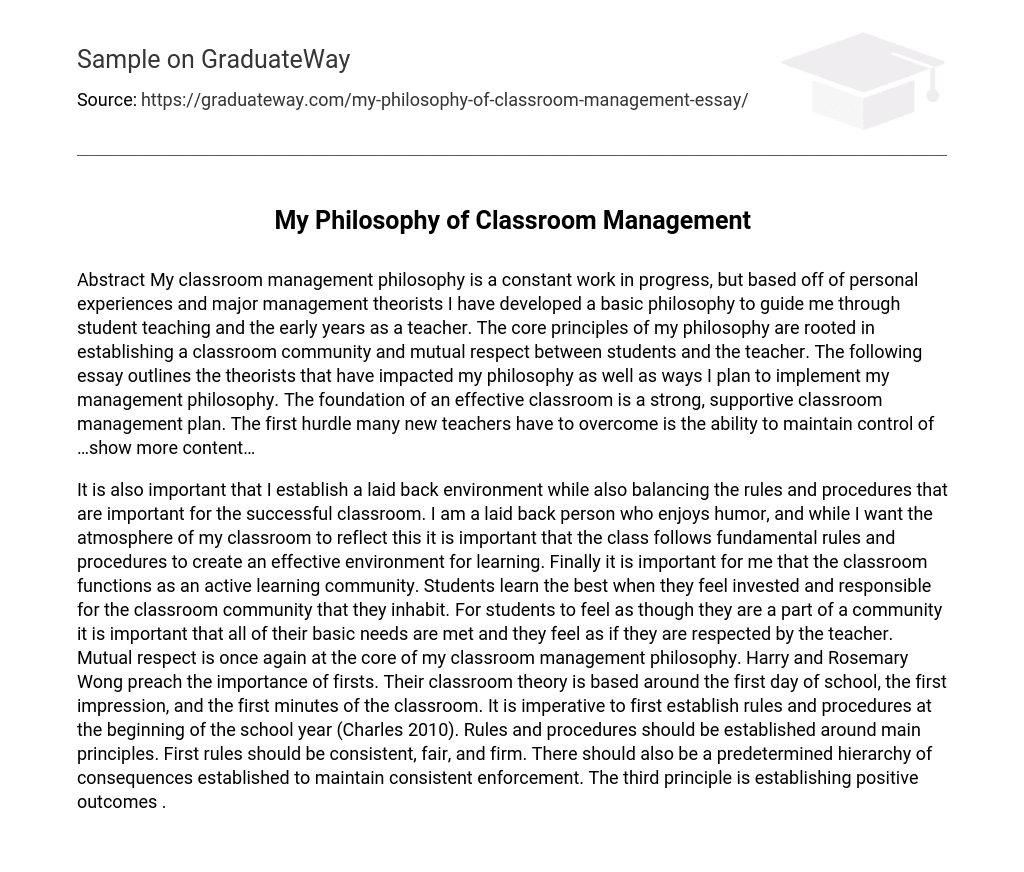Abstract My classroom management philosophy is a constant work in progress, but based off of personal experiences and major management theorists I have developed a basic philosophy to guide me through student teaching and the early years as a teacher. The core principles of my philosophy are rooted in establishing a classroom community and mutual respect between students and the teacher. The following essay outlines the theorists that have impacted my philosophy as well as ways I plan to implement my management philosophy. The foundation of an effective classroom is a strong, supportive classroom management plan. The first hurdle many new teachers have to overcome is the ability to maintain control of …show more content…
It is also important that I establish a laid back environment while also balancing the rules and procedures that are important for the successful classroom. I am a laid back person who enjoys humor, and while I want the atmosphere of my classroom to reflect this it is important that the class follows fundamental rules and procedures to create an effective environment for learning. Finally it is important for me that the classroom functions as an active learning community. Students learn the best when they feel invested and responsible for the classroom community that they inhabit. For students to feel as though they are a part of a community it is important that all of their basic needs are met and they feel as if they are respected by the teacher. Mutual respect is once again at the core of my classroom management philosophy. Harry and Rosemary Wong preach the importance of firsts. Their classroom theory is based around the first day of school, the first impression, and the first minutes of the classroom. It is imperative to first establish rules and procedures at the beginning of the school year (Charles 2010). Rules and procedures should be established around main principles. First rules should be consistent, fair, and firm. There should also be a predetermined hierarchy of consequences established to maintain consistent enforcement. The third principle is establishing positive outcomes .





